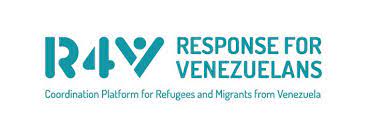COVID-19 Reports on Latin America and the Caribbean: No. 63
On September 14th, 2021, a very interesting webinar titled “Access to Information on/for Venezuelan Refugees” took place as part of the Conference on Access to Information: Latin America and the Caribbean (CAI:LAC). The panel was moderated by Eunice Lee, Associate Professor of Law, at the University of Arizona Law. Ms. Lee had Tim Howe, Regional Coordinator at R4V; Ivonne Garza, Associate of the O’Neill Institute for National and Global Health Law, Georgetown Law School; and David Sanchez, Specialist in migrant and refugee populations; as speakers. They explained in detail the current situation of Venezuelans as migrants and refugees as well as the challenges they face in Latin America and the Caribbean.
The exodus of Venezuelans that slowly started when Hugo Chavez came to power, has progressively spiked with the election of Nicolas Maduro as their President in 2013. To date, there are 5.7 million Venezuelans migrants and the number is going up everyday because of the ongoing pandemic, which has worsened food and medicine insecurity in the South American country.

Thanks to a welcoming policy by Latin American States, 4.6 million Venezuelans reside in Latin America and the Caribbean, according to R4V, Regional Interagency Coordination Platform for Refugees and Migrants of Venezuela. However, current times are extremely hard for migrants. Venezuelans work in the informal sector as close to 60 % of them are undocumented and the strict lock-down put in place in the region to fight Covid-19 has aggravated their precarious situation. Their main needs are food, housing and employment. Thus, legalizing their situation is a must.
Host countries such Colombia, Ecuador, and Peru need to ease the access of information to migrants and refugees, creating centers of information ad hoc. Regarding the content of information, the speakers advise that it needs to be provided to Venezuelans in a simple way by trained staff, preferably in person as many of the migrants have not completed high school, and/or they are not comfortable dealing with Internet. Also, documents requested by host States to regularize Venezuelans status should be harmonized, especially now that they have started mobilizing from their host countries to the north (Panama, Mexico and the United States). The panel also suggested to apply flexible criterion to legalize their situation. For example, many Venezuelans have traveled with an expired passport, either because the cost of obtaining a renewal in their home country was not affordable, or the pandemic has made it even more difficult. Thus, to require a valid passport from host countries seems not feasible.
Finally, the panelists agreed on the necessity of host countries to strengthen cooperation with organizations such as the International Organization for Migration (IOM) and the United Nations High Commissioner for Refugees (UNHCR) as well as non governmental organizations.